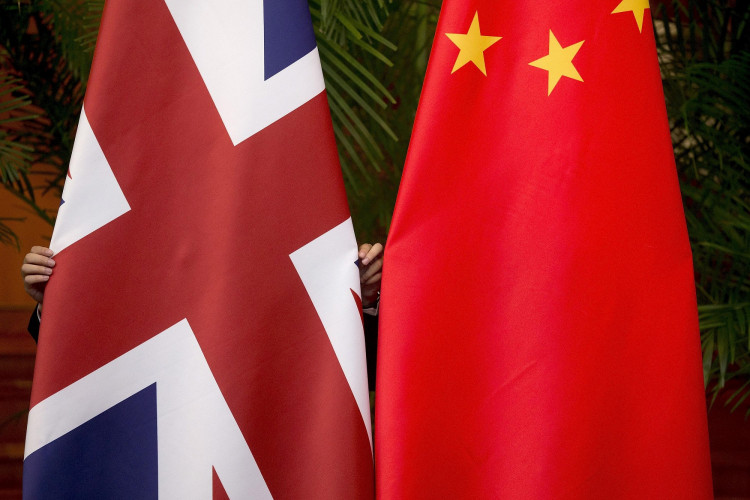A landmark espionage case involving two men accused of spying for China collapsed last month after the UK government failed to provide evidence formally designating Beijing a threat to national security, the country's top prosecutor said, exposing a major gap in how Britain defines foreign risks.
Director of Public Prosecutions Stephen Parkinson said the Crown Prosecution Service (CPS) could not proceed against Christopher Cash, 30, and Christopher Berry, 33, because government witnesses declined to state that China was considered an "enemy" at the time of the alleged offences. The ruling stems from a recent legal precedent requiring prosecutors to prove that a foreign power represented a national security threat when the offence took place.
In a letter to Parliament's home affairs and justice committees, Parkinson said efforts to obtain that evidence from ministers and officials had failed despite "many months" of requests. "None of these stated at the time of the offence China represented a threat to national security ," he wrote. "When this became apparent, the case could not succeed."
The charges, brought under the 1911 Official Secrets Act, accused Cash, a parliamentary researcher with expertise on China, and Berry, a former teacher in China, of gathering and sharing information "prejudicial to the safety or interests of the state" between 2021 and 2023. Both men denied wrongdoing. Prosecutors alleged the pair passed intelligence related to Westminster affairs to Cai Qi, a senior member of China's ruling politburo.
The case unraveled after an unrelated trial earlier this year-concerning six Bulgarians convicted of spying for Russia-clarified that an "enemy" under the Official Secrets Act includes any country that "represents at the time of the offence, a threat to the national security of the UK." To meet that standard, prosecutors needed a formal statement from the government that China had been considered such a threat. None was forthcoming.
At the time of the alleged offences, official UK policy described China as a "systemic competitor" under Boris Johnson's 2021 Integrated Review and later as an "epoch-defining and systemic challenge" in the 2023 update under Rishi Sunak. Neither definition classified Beijing as a national security threat. "You have to prosecute people on the basis of the circumstances at the time of the alleged offence," Prime Minister Keir Starmer said. "That's not a political to and fro; that's a matter of law."
Parkinson said the CPS initially believed the evidence was sufficient when charges were filed in April 2024 but that the revised legal standard raised by the Bulgarian case had "raised the threshold." After repeated requests, government witness Matthew Collins, a deputy national security adviser, could not provide language meeting the new requirement.
The failure has triggered bipartisan outrage in Westminster. Former DPP Lord Macdonald called the collapse "extraordinary" and urged Attorney General Lord Hermer to appear before MPs. "You simply cannot have a serious national security case collapsing without some proper explanation being given to the public," he told BBC Radio 4. He added that "perhaps there was a feeling the DPP had been a bit over-fussy here... but of course China is a threat to the UK's national security."
Former Intelligence and Security Committee chair Dominic Grieve said the debacle suggested "a failure to get to grips with what might be required to be proved in court." BBC security correspondent Gordon Corera called it "extraordinary" that the case fell apart just days before trial, noting "there had been a lot of expectation around the case."
Downing Street has rejected accusations that it withheld evidence.






